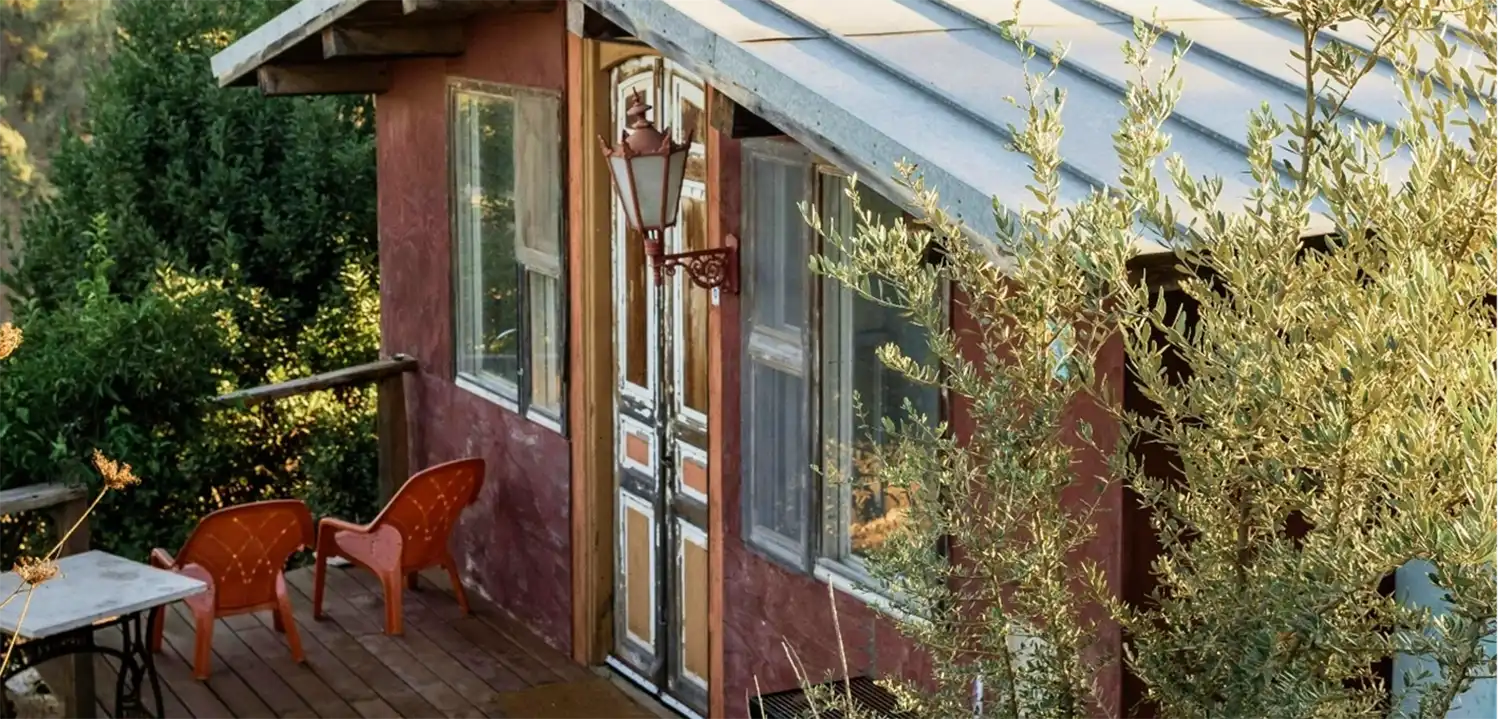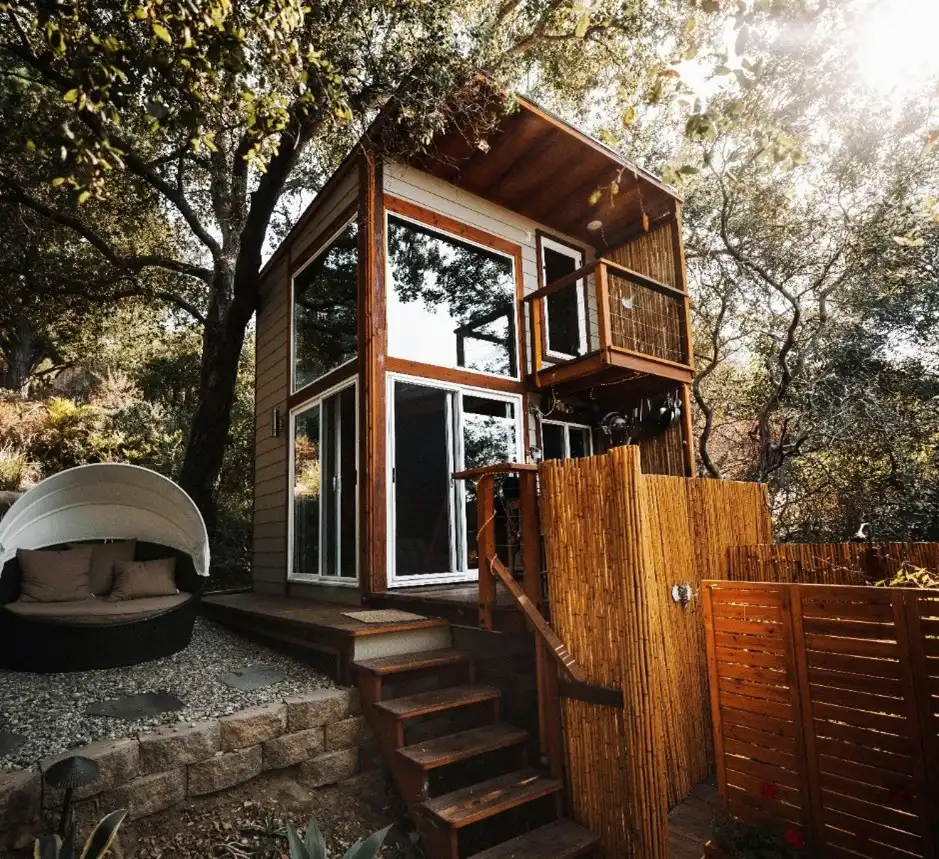
You might be familiar with guest houses or garden suites. You might have seen detached garages turned into cottages, or finished basements converted into rental space. Town managers call these extra living spaces ADUs: accessory dwelling units.
A house deed typically does not point out an ADU on the property. But the additional living unit should still be registered and filed in the county records.
If you’re considering buying or creating a property with an ADU, read on as we do some issue-spotting, Q&A style.
Will My ADU Have Its Own Deed?
No. ADUs are a type of housing unit, but they don’t have their own street addresses. They can be:
- Interior units. Examples include the English basement and the attic-turned-apartment.
- Attached units. These self-contained living units are additions to the primary home. You’ll usually see the additional unit at the side or rear of the main home, or placed above an attached garage.
- Detached units: These are separate, or above separate garages. Towns may require a separate structure to be styled similarly to the main home. (Although it’s possible that a detached ADU was prefabricated, mobile homes don’t count as ADUs.)
An ADU is not considered a duplex. An ADU can’t be “sold separately” from the primary home. Indeed, an ADU will usually share the main home’s street address and utility accounts. And so, an ADU doesn’t have a deed of its own.
An ADU should have a deed restriction, separately recorded. We’ll explain this in a minute. But first…
What’s the Best Reason to Have an ADU?

An accessory dwelling unit is a smaller living space beside, or even inside, the main home. The deed holder lives on the property — typically in the main home. The ADU exists to house an additional person or persons. So, the ADU offers extra housing. That’s a very good reason to build one.
Plus:
- An additional living space on the property can provide rental income for a deed holder. (Note: Using a short-term home-sharing platform, like Airbnb, may be locally prohibited.)
- An ADU could become a safe, affordable option to house a relative, maybe as an alternative to costly independent living developments.
- A deed holder might want to house an adult child who is saving up to apply for their own mortgage.
Some deed holders simply want a little extra space for themselves. An ADU can serve as the perfect music studio, woodworking shop, or home-based office space.
Will Constructing an ADU Add Value to My Home?
Local governments often find that ADUs add marketable value to properties. Higher property values can result in increased tax revenue for a town.
And so, some town governments welcome ADUs. Following a vital trend to seek “gentle density housing,” many towns across the country are now “upzoning” to encourage deed holders to construct ADUs.
Town governments that have embraced the ADU zoning trend also point to these advantages:
- Overall benefits of using land efficiently.
- Filling local housing needs.
- Freedom of choice for the deed holders to get more value out of their property.
So, assuming the proper permitting (see below) got done, yes. An ADU can indeed add value. An appraiser can tell you how much value an existing ADU adds to the value of your home deed. Freddie Mac says: “By adding an ADU, you can increase the value of your home by as much as 35%.”
Renting out space on your property? As tax season rolls around, here’s a reminder about filing Schedule E.
Can I Install an ADU?
Maybe. It’s a matter of what your local land-use rules and zoning ordinances allow.
If your local government says “yes” to ADUs, the town will want you to apply for a permit. Town officials usually want new construction to conform with the current appearance and customs of the area. So, expect your town to have a slew of rules, such as these examples:
- An ADU must fit into the local zoning standards. Check for allowable footage, height, and setbacks from the edge of your lot.
- The deed holder lives on the property (whether in the main home or the addition).
- The ADU’s entry does not face outward — so it’s not mistaken for a home with a specific street address.
- Creation of a parking space for the ADU may be necessary, and must follow the local regulations.
- The ADU must be fully self-contained, with living space that includes a kitchen, bedroom and bathroom.
Remember: What counts as a legitimate ADU is up to your local (county or city) government, so we’re talking in broad terms. How you’re permitted to make use of the ADU will also depend on your town’s regulations.
What Are the Steps in the Process?
Check your local zoning ordinances. If they allow applications for ADUs, then the checklist goes like this:
- Review the ADU requirements your town planners have established and be sure your plan will work.
- Get the application form. It is published by your county or town.
- Complete the form and submit it to the local authorities.
- Wait for the county or city to approve your plan.
Once approved, your ADU will be registered in the local records. There are typically different permit processes for attached and detached ADUs. And of course, fees! Unless the local government waives them.
Do you have to go through all this red tape? Many people build unpermitted ADUs. But with the right permissions, your additional unit can be insured. That makes your property more marketable, and thus more valuable.
How Do I Know What to Do With My Deed?
The local department that approves your application files your approved form, and a writeup of the conditions under which your ADU will exist as a deed restriction. The new deed restriction, with all conditions, will be titled something like Declaration of Restrictive Covenants for an Accessory Dwelling Unit. It will state the name of the city or county that approved your ADU.
Which department files this paperwork? It varies by county. For example, it may be the local auditor’s office that files the deed restriction.
Once recorded, your new deed restriction will run with the land as long as the ADU exists. In other words, if you transfer your property deed through a sale, the buyer will need to adhere to the conditions on the deed restriction. Leaving your property to another person as part of your estate planning? Your chosen beneficiary should understand and abide by the ADU’s restrictive covenants.
To boil it all down: Once your deed restriction is on the record, you have impacted the title to your home. You now have two units on your single residential property. And you now hold (a) one deed, with (b) a deed restriction for the additional unit.
Supporting References
The Department of Planning and Economic Development for the City of Poulsbo, Washington (Kitsap County), via CityofPoulsbo.com: Accessory Dwelling Unit Handout (Feb. 2017).
Carrie Mick for McKissock Learning via McKissock.com: How to Identify a Single-Family with ADU vs. Two-Family Property Appraisal (updated October 30, 2024; citing ADU definition in the Fannie Mae Selling Guide).
And as linked.
More on topics: Hire an appraiser, Age in place
Photo credits: Roberto Nickson and Ksenia Chernaya, via Pexels.
